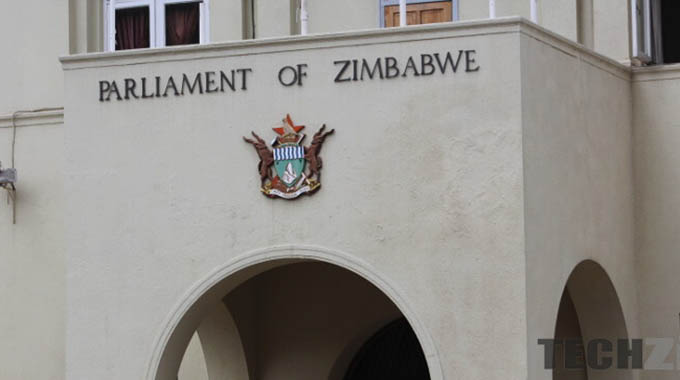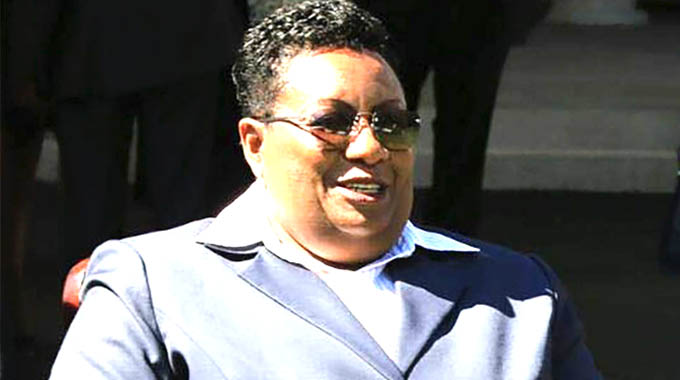AG’s report: House must tighten screws on the fiscus

Beaven Dhliwayo Features Writer
The Parliament of Zimbabwe should expedite the alignment of the Public Finance Management (PFM) to the Constitution in order to enforce mechanisms for continuous monitoring of public resources and provision for redress during implementation of the budget rather than wait for the Auditor-General’s (AG) report.
The country’s PFM is characterised by growing fiscal leakages, lack of transparency, accountability and continuous violation of legal and constitutional provisions.
In economics, a leakage refers to capital or income that exits an economy or system rather than remaining within it. In 2015, during presentation of the Mid-Term Policy Statement, the then Finance Minister Patrick Chinamasa said up to US$1,8 billion was being lost annually in Zimbabwe through smuggling, illegal dealing in gold and other precious stones, corruption, fraud, tax evasion, and externalisation, among others.
As a result, the country grappled for years with huge and unsustainable budget and current account deficits, declining economic growth rate and unsustainable domestic and external debt. The AG’s Office has been tabling reports, which revealed shocking levels of mismanagement of funds and plunder of resources by State-owned enterprises.
But over the years, nothing has been done to bring the perpetrators to account. In her 2018 report, Auditor-General Mrs Mildred Chiri revealed that Government last year overspent by more than US$2 billion without seeking parliamentary approval, while various departments and local authorities deliberately contravened accounting procedures.
There are several shocking revelations, which the AG’s office uncovered and its high time parliamentarians grow teeth and shame individuals who are using taxpayers’ money for wrong purposes. One of the most shocking revelations is the failure by the Ministry of Transport and Infrastructural Development to account for more than US$52 million released by Treasury to bail out Air Zimbabwe, Civil Aviation Authority of Zimbabwe and Central Mechanical and Equipment Department.
This is in addition to the US$4,9 million, which the Zimbabwe Electricity Transmission and Distribution Company (ZEDTC), paid to a company known as Pito Investments nine years ago for transformers that were never delivered.
Pito Investments is a story for another day. Further, Chiri and her office, exposed the plunder, corruption and mismanagement at Air Zimbabwe, Zimbabwe School Examinations Council and the Grain Marketing Board among others.
The Ministry of Primary and Secondary Education diverted over US$6 million meant for procuring books for the curriculum and technical services to other expenditures.
This adversely affect the attainment of Goal Number 4 of the Sustainable Development Goals (SDG 4), which seeks to ensure inclusive and equitable quality education and promote lifelong learning opportunities for all.
Additionally, according to the 2018 report, the country could also have lost more than US$100 million in fabricated loan repayments because of a shoddy reporting system across ministries and statutory funds.
This is not the first time that Mrs Chiri has exposed looting of public resources, corruption and mismanagement in local authorities, Government and State entities.
However, with all the striking evidence presented by the AG’s Office over the years, nothing has been done to correct the anomalies, especially from parliamentarians.
Presenting an analysis of the 2018 Auditor-General report findings in the capital on Tuesday, the Zimbabwe Coalition on Debt and Development (Zimcodd) economic analyst Tafadzwa Chikumbu said poor governance and financial malpractices in the country, if not addressed, will worsen public mistrust and compromise tax compliance.
Despite the growing public interest in the findings of the AG’s report, Chikumbu said there has been a lack of political will to enforce the recommendations, hold the perpetrators accountable and enforce appropriate penalties and disciplinary action.
“Parliament should facilitate an inquiry into the specific recurrent irregularities on appropriation accounts, State-owned enterprises and local authorities and develop a comprehensive programme for monitoring and reviewing actions taken on the recommendations outlining clear timelines considering that some of the recommendations date back to 2014,” said Chikumbu.
He added: “Clear penalties should also be enforced on persistent malpractices.
“Legislators should come with an Act of Parliament that protects Fund Accounts, especially those that are meant for supporting vulnerable groups such as children, the elderly, people living with disability as well as beneficiaries of the National Drought Fund and the National Rehabilitation Centres Welfare Fund.
“Parliament of Zimbabwe must guarantee operating space and legal freedoms required by civil society organisations to engage in advocacy and activism on the basis of the audit findings,” he said.
Other recommendations that came out of the meeting include the development and implementation of coordinated anti-corruption policies that promote the participation of society and reflect the principles of the rule of law, proper management of public affairs and public property, integrity, transparency and accountability. It was recommended that Parliament come up with clear mechanisms for the continuous monitoring of public resources and provision for redress during implementation of the budget rather than waiting for the Auditor-General’s report. This would go a long way in fostering fiscal discipline. Government should also establish follow-up schedules for each ministry, department, agency, parastatal and local authority. There is also the need to legislate the entire budget cycle to allow clearly defined entry points for citizens and parliamentarians.
The Government should also align penalties on financial misconduct in the PFM Act with those in Prevention of Corruption Act and other statutes. Graft is threatening to destroy the very core of Hunhu/Ubuntu, with no consequences to the perpetrators.
It appears all parastatals have become the feeding troughs for the elite, their relatives, children and hangers-on, and this should be put to an end. Sober citizens who have been continuously duped of their hard earned cash by dubious officials are watching closely to see if the reports will be swept under the carpet as did the numerous audits that were published by the Auditor-General during former president Robert Mugabe’s rule.
Mugabe had cultivated a culture of corruption among top Government and ZANU-PF party officials, by not acting on the rot.
His administration’s failure to arrest the culprits, whose actions haemorrhaged the economy of millions of United States dollars fuelled kleptocracy where his close political associates could loot with reckless abandon without any consequences to their actions. However, President Mnangagwa promised zero tolerance in his Government’s push to punish corruption that stifled political freedom and economic growth under Mugabe’s 37-year rule.
“Corruption remains the major source of some of the problems we face as a country and its retarding impact on national development cannot be overemphasized,” said President Mnangagwa.
“On individual cases of corruption, every case must be investigated and punished in accordance with the dictates of our laws.
“There should be no sacred cows. My Government will have zero tolerance towards corruption and this has already begun,” emphasised the President.
President Mnangagwa has to act on these cases of mismanagement and corruption, which has become a way of life in Zimbabwe.
There is no stronger evidence of the rot than what Auditor-General Chiri has exposed.









Comments